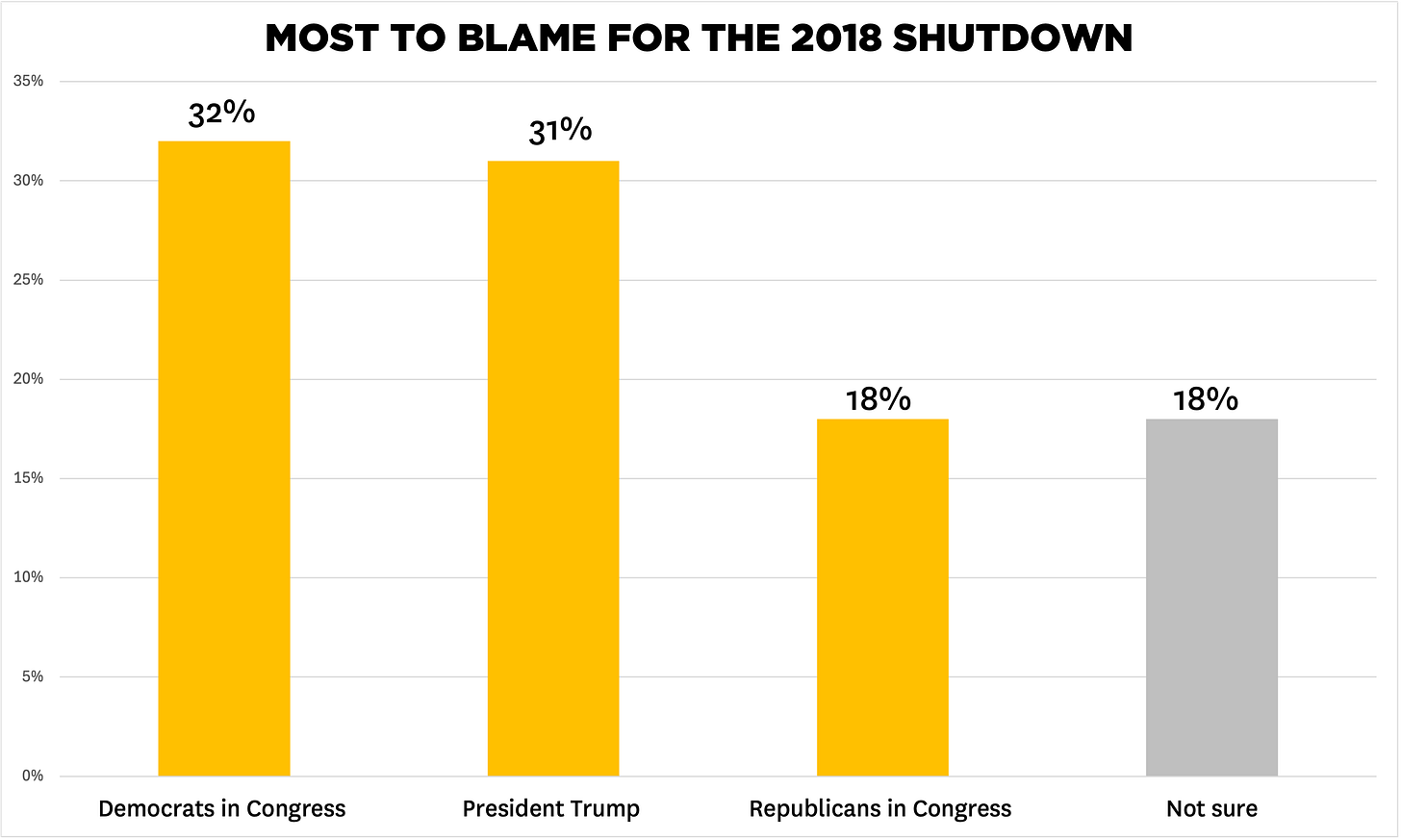No One Wins in a Shutdown
Both parties would get blamed, and Congress’s reputation would only get worse
The federal government is set to shut down on March 14 unless Congress can pass a bipartisan funding bill before then. As of right now, there is no guarantee that the bill – called a “continuing resolution” (CR) – has enough support to pass.
The House on Tuesday narrowly passed the CR, with all Democrats except Rep.
voting no. In the Senate, even if all Republicans vote yes, they will need at least eight Democrats to help them clear the filibuster. That’s a tall order.Each side is playing a game of political chicken. Republicans think Democrats don’t have the gall to shut down the government. Democrats, in turn, want to use the prospect of a shutdown as leverage to stop or slow the work of the DOGE commission.
But both sides are playing with fire. The public isn’t impressed by political gamesmanship; they just want a government that works. Based on polls from previous shutdowns, Republicans and Democrats alike will catch flak if they don’t pass the CR this week.
Just look at the most recent government shutdown, which took place between December 2018 and January 2019. It was the longest shutdown in U.S. history, lasting a total of 35 days.
Much like today, Republicans narrowly controlled the Senate and the House,1 and Donald Trump was the President. The House passed a spending bill along party lines right before the shutdown deadline. Senate Democrats opposed the bill because it included $5 billion to build the border wall, so they filibustered and the government shut down.
A December 2018 YouGov poll asked Americans who deserved blame for the shutdown. No one was spared; each group in Washington was blamed by at least two thirds of the public:
YouGov also asked respondents whether members of Congress – of both parties – should:
Compromise to reach a budget agreement, even if it means sacrificing some priorities that they believe in; or,
Fight for the priorities that they believe in, even if it means risking a government shutdown.
By a 22-point margin, voters overwhelmingly chose “compromise.” The message was clear: Americans don’t want shutdowns.
The polls told a similar story in the shutdown before that, the short-lived shutdown of January 2018. The story was the same: Republicans controlled Congress and the White House. The House passed a funding bill, but Senate Democrats filibustered over immigration policy concerns, and a shutdown followed.
This shutdown only lasted a couple of days, but Americans were still unhappy. A January 2018 Quinnipiac poll asked respondents who they blamed the most for the shutdown, and they split nearly even between Congressional Democrats and President Trump:
When Quinnipiac asked if the shutdown was necessary, 84 percent of respondents said no. Considering how divided Americans are on nearly every issue, that level of agreement should send a clear message.
Now, as yet another shutdown is looming, Washington should learn from past mistakes. Americans will not support the shutdown, both parties will take blame, and Congress’s dismal reputation will only get worse. It’s time to make a deal.
The GOP controlled Congress when the shutdown started in December. But when the new Congress was sworn in in January 2019, Democrats had control.




Congress loves the last minute showdown, followed by the respective victory laps. So yes two parties will claim a win “for the people” with a big smile on their faces. The people lose. The CR does not solve our fiscal problems, just kicks the can down the road, until one day there is a big gaping hole in the road, and oops no more can to kick, but still another party to blame for creating the hole. Make congress work is our new NL slogan, and let’s hope for some courageous members of the 535 in congress to help make it work again.
The taxpayer wins. Reduce spending or shut it down. The grift must end.